The consulate general of Afghanistan in Bonn, Germany, appears to have opened its doors once more after being closed for several weeks. It is now run under new management: an envoy sent by the Taliban government in Kabul. What do these changes mean for Afghans who live in the area?
Not much appears to have changed on the website of the General Consulate of Afghanistan in Bonn, Germany, in recent weeks. The look of the platform has changed to rosy colors, but the message it carries remains the same:
"The official website of the Consulate General of the Islamic Republic of Afghanistan in Bonn is no longer active."
Furthermore, the website says that it "will be decommissioned on December 31, 2025," — featuring a bright countdown to said date on the right-hand side of the site.
On Google Maps, the facility also remains "temporarily closed" — as if to say it is merely undergoing some decorative refurbishing.
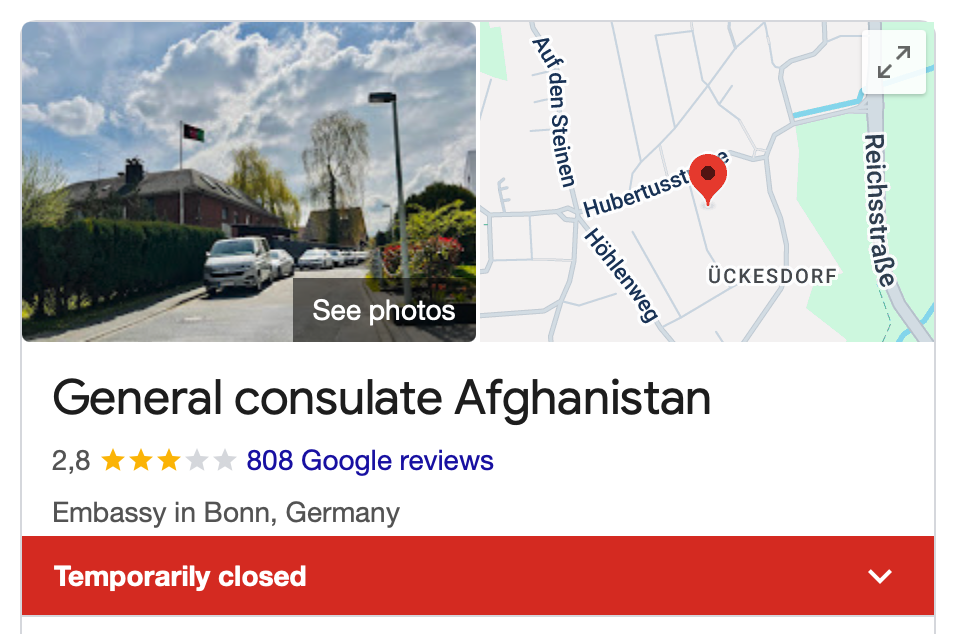
At the same time, however, another website using a different domain appears to have opened in its place, saying that the Bonn facility is back in business and committed to "(s)erving the Afghan community in Germany with dedication and excellence."
But many questions remain about the nature of that facility and what services it will actually be able to offer.
Read AlsoGermany: Afghan consulate in Bonn closes
The Taliban takeover — in Bonn
Just a few weeks earlier, Afghan Consul General in Bonn Hamid Nangialay Kabiri resigned from his post in an act of protest against the impending takeover of certain aspects of the facility by representatives of the Taliban authorities.
Kabiri left a heartfelt message on all social media platforms belonging to the consulate explaining his motivation; that message is currently only available on his private Instagram profile.
His entire staff reportedly followed suit at the time; however, both eyewitness accounts on the ground and investigation by Germany's public broadcaster ARD reveal that several of those employees have now returned to work, as things once again appear to be changing there.
The building on Liebfrauenweg 1A stood empty for several weeks; classified documents stored at the facility were reportedly handed over for safekeeping to Germany's Foreign Office, as the facility also reportedly served as an intelligence-gathering hub, according to various German media outlets.
A video posted on YouTube and other social media platforms on its last day of operation showed eerily abandoned corridors, conference rooms and offices, with the old flag of the Islamic Republic of Afghanistan flying for the last time over its rooftop.
That video has since been removed, and is also only available now on the private X profile of former Consulate General Kabiri.
Doors of consulate reopen
Currently, the consulate general's accounts on Facebook and YouTube remain inactive, while its profile on X features a message in Dari, dated November 9, saying that all consular services would soon resume.
Behind the facade of the building in Bonn, some wheels have however apparently been in motion recently, with visitors to the facility reporting that certain "consular services" are already now available in person again under its new management — a special envoy from Taliban-run Kabul.
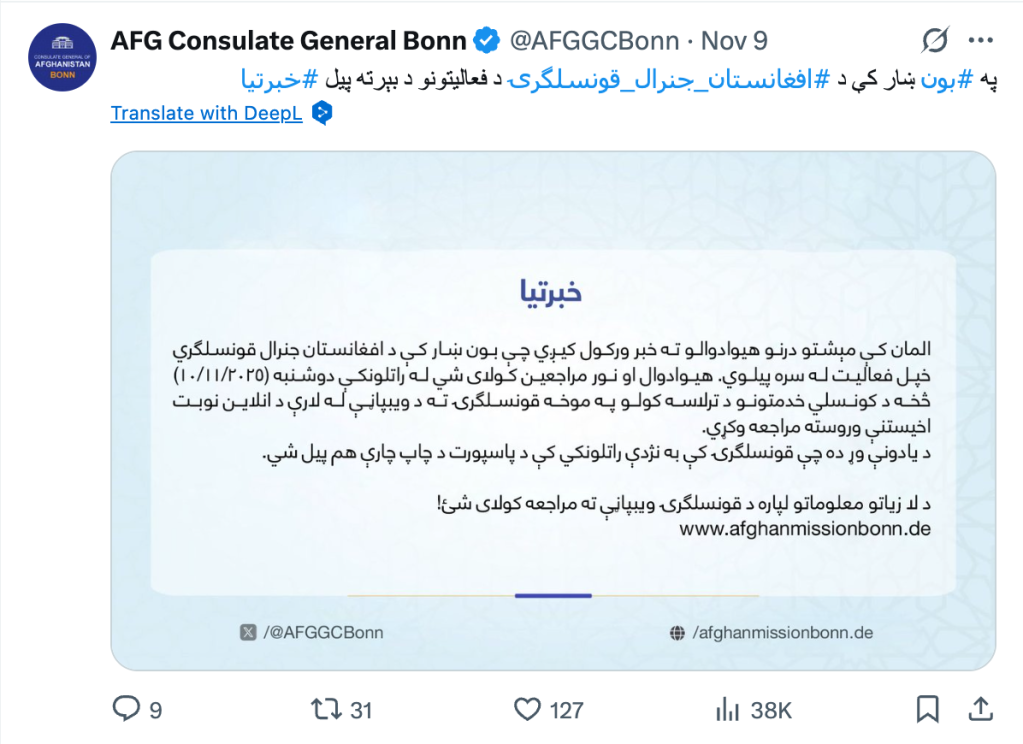
This all begs the question: Is the facility now actually a legal part of Afghanistan's consular services in Germany, and part of the diplomatic landscape — or not?
Read AlsoGermany: Afghan women and girls almost guaranteed to receive asylum
Schrödinger's consulate?
Like most other Western states, Germany does not recognize the de facto Taliban government of Afghanistan, not only because of its abysmal human rights record and deliberate negligence of universal women's and minority rights but also because of its violent takeover of the country in August 2021.
That government, which styles itself as the Islamic Caliphate of Afghanistan, is only recognized by Russia, and to a lesser extent by Kazakhstan; Pakistan and India are also known to have active relations with authorities in Afghanistan, which can be compared to the status of a de-facto recognized state.
In Europe, however, the black-on-white flag of the Islamic Caliphate of Afghanistan is practically banned; for example, showing it at public events and rallies is forbidden in Germany, as it implies support for the Taliban worldview.
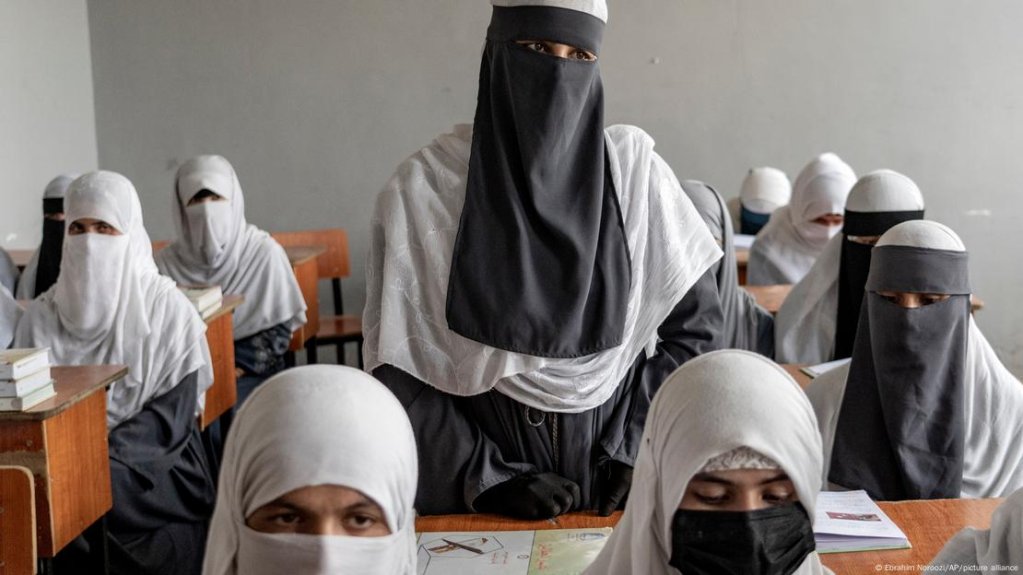
A senior European diplomat meanwhile told InfoMigrants that "a lot of countries do not recognize [certain] governments — in the sense that they do recognize the states, legally speaking, but not the fact that the government is in the hands of, in this case, a terrorist group. That's what's under question."
"Basically, they can make a difference between the fact that they do recognize the state [of] Afghanistan, but they do not recognize the government," the diplomat said, underscoring the fact that in most instances, the composition of the government can be irrelevant, especially when it comes to practical matters.
But with Germany only accepting the prior government of the country, i.e. the Islamic Republic of Afghanistan, as its legitimate government, what designation can this building in Bonn legally hold, and how binding can the services it renders be to those who need them?
Loopholes, workarounds and modern design
Perhaps one clue as to what the Bonn facility is not can be extrapolated from the fact that while it was home to a consul general before, its new boss is not recognized under this title by German authorities; therefore and in the absence of a consul general, the facility can not be considered a consulate general but is rather an administrative office of sorts.
The new head of the office, however, styles himself as consul general nevertheless in external communications.
According to information made available by Germany's public broadcaster ARD, the man was issued papers that qualify him as an accredited "diplomat" serving in Germany, however without carrying the official title of "consul general" — although in practise, this may have little to no legal consequence.
The German Foreign Office itself meanwhile explains the legitimacy of the Bonn representation as follows: even without a direct consul general in place, the facility is considered an extension of the embassy in Berlin.
But here, too, lies a loophole — if not an error: The Berlin embassy is not under the leadership of an actual ambassador; the most senior person in charge at that office is a chargé d'affairs, who — while appointed prior to the Taliban power grab in 2021 — has agreed to enter into a cooperation with the current leadership in Kabul.
On the Afghan side, as well, there appear to be hints of trying to play it safe during this period of courting between the two governments: none of the online and social media platforms pertaining to the facility in Bonn feature the flag of the so-called Islamic Caliphate; if anything, the design used appears contemporary and modern, featuring colors that are neither affiliated with the current de-facto government nor its predecessor.
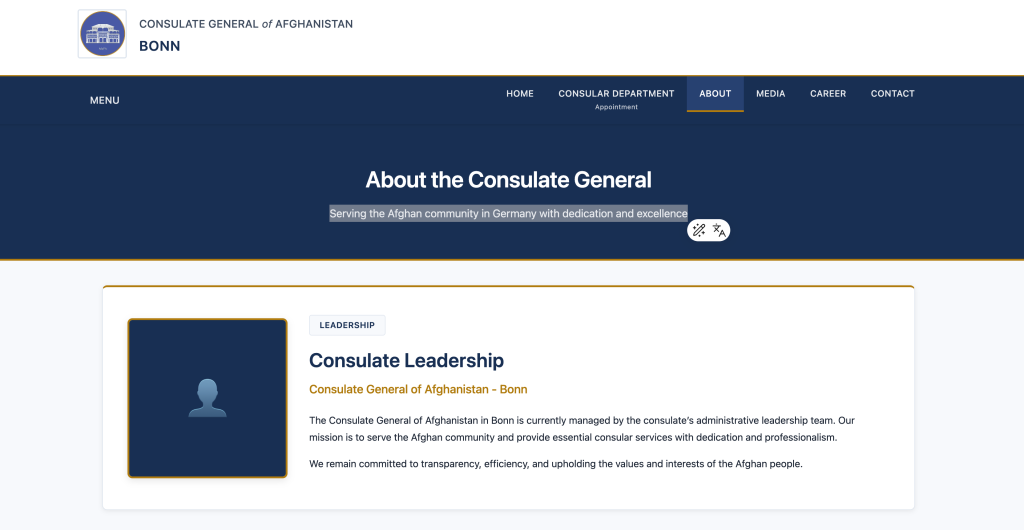
Whose passport is it anyway?
As of November 11, the facility in Bonn says it has started to once again offer certain consular services (despite neither being a consulate general nor an embassy), adding that in due course, it would also be in a position to issue and renew passports.
This again, however, raises further questions, as Germany so far has only been accepting passports issued by the Islamic Republic of Afghanistan and not those issued by the self-styled Islamic Caliphate.
If the passports to be issued bear the insignia of the Taliban government, they could be considered null and void by German authorities, leaving thousands of Afghans in Germany in limbo when needing to produce identification documents.
Afghans in Germany, especially in Bonn and its outlying areas, are worried about what these current developments will translate into in practise.
One Afghan in the region told ARD, on the condition of anonymity, that many simply have no other choice than to deal with whoever is in charge at the Bonn facility.
"This is the only place where we can conduct our business at all. It is worrying, of course, because we fled from the Taliban, and now the embassy and consulate are run by the same Taliban. However, it is a necessity for us ordinary people."
Read AlsoGermany turns to Taliban to deport Afghan criminals amid migration policy shift
German-Afghan deals
Germany has a vested interest in cooperating more closely with the powers-that-be in Afghanistan, even if the government refuses to recognise the country under its current leadership:
Germany is home to over 425,000 people of Afghan descent, many of whom arrived as asylum seekers in the aftermath of the 2021 Taliban takeover.
But there are also some Afghans — for instance those who may have been convicted of crimes or had their asylum applications refused for other reasons — whom Germany would like to deport back to Afghanistan.
In recent months, the German government has begun to seek direct contact with the Afghan authorities in order to ease those deportation flights, and avoid going through a third party, like Qatar, which has brokered previous deportation flight deals on behalf of Germany.
However, despite these tentative talks and efforts to find a direct deal in the absence of recognizing the present Afghan leadership and government, there is no formal extradition treaty in place — something the German government would like to change.
Read AlsoAfghanistan: Germany 'close to reaching deportation deal' with Taliban
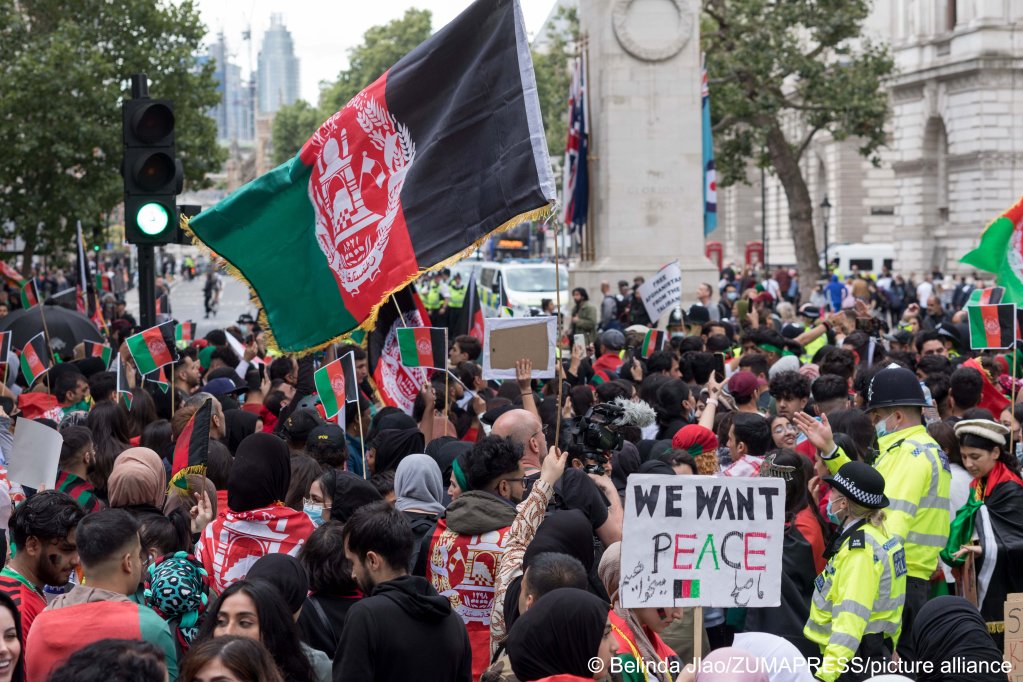
To that end, the current government of German Chancellor Friedrich Merz has been making some cautious inroads with representatives of the Taliban government.
Accepting a diplomat in Bonn (as well as another one at the embassy in Berlin) not only sends a signal of rapprochement to Kabul but also lays the groundwork for the administrative steps involved in carrying out actual deportations to take place in the future.
The German government had hoped to charter its first deportation flight to Afghanistan before the end of the year, but with only six week to go to that deadline, this timeframe seems increasingly unlikely.
For many Afghans though, who need to get documents from an official envoy, that journey to Liebfrauenweg 1A in Bonn will remain one that is fraught with anxiety, fear and doubt.
Read AlsoAfghanistan: IOM sounds alarm over returning migrants
